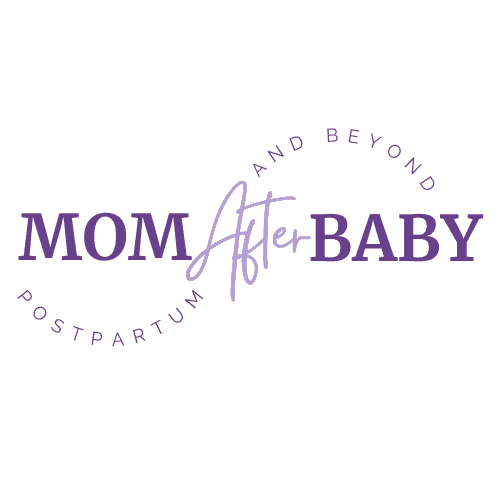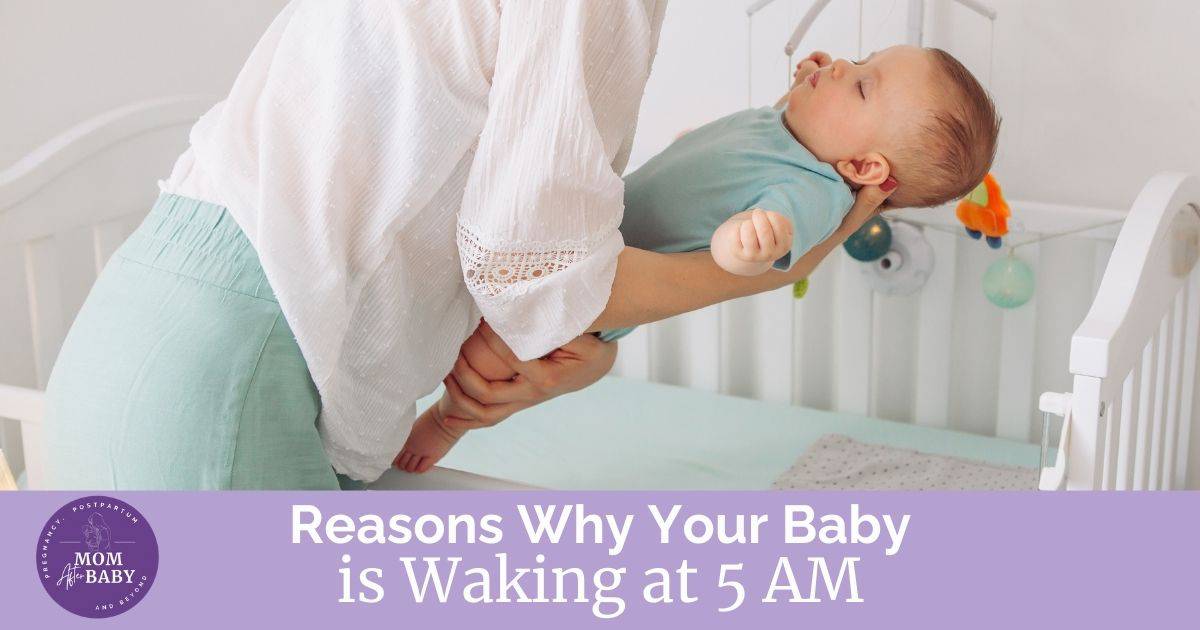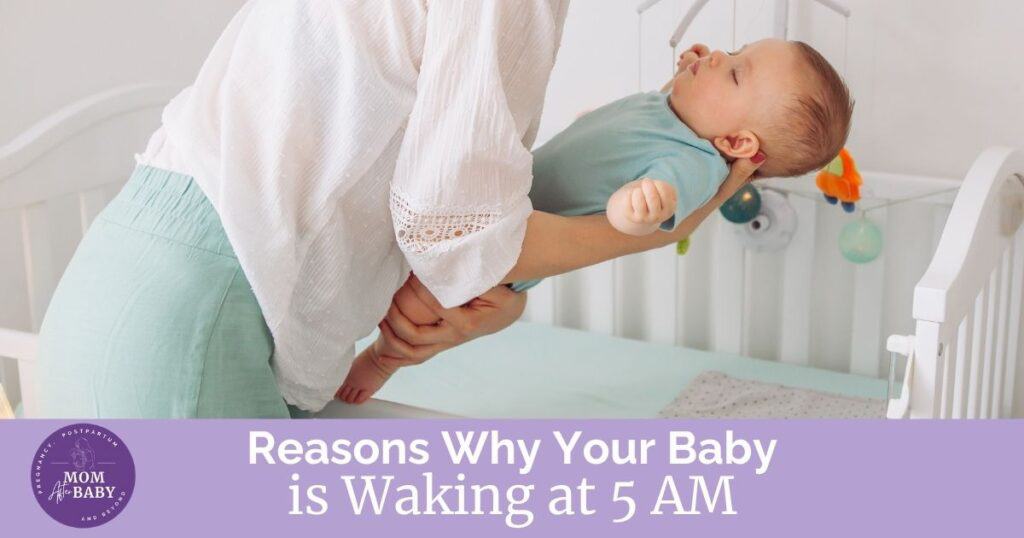6 Reasons Why Your Baby is Waking at 5 AM
This post may contain affiliate links that I may receive a commission from if you click & buy. In addition, the information on this site is NOT intended to be medical advice. See my full policy for more information.
As a parent, early mornings are par for the course, but when your baby starts joining the sunrise club, it can be absolutely exhausting. If you’re stuck in the cycle of 5 AM wake-ups, take heart – there are underlying reasons and strategies to help you and your baby achieve those extra few hours of sleep you both need.
In this blog post, the pediatric sleep experts over at Baby Sleep Code are going to help you decode your baby’s mysterious early morning 5 AM wakings.
First, why are early morning wakings so common?
Blame it on biology! Just like us, babies’ sleep patterns are controlled by two internal systems: the homeostatic sleep drive and the circadian rhythm.
The homeostatic sleep drive creates a “sleep pressure” that builds the longer we’re awake. This pressure is strongest at bedtime and wanes as we sleep, making early morning hours a low-pressure period for sleep. When babies wake during this time, it’s tough for them to return to sleep, because that drive to sleep is so much lower.
The circadian rhythm, our 24-hour internal clock, is the other sleep regulator. Babies’ melatonin (sleep hormone) levels peak between bedtime and midnight but nearly deplete by the early hours. Their sleep becomes lighter, and the body releases cortisol (alert hormone) to prepare for wakefulness.
In essence, early mornings are the trickiest for babies to remain asleep. Any disruptions to their routine or small environmental factors can easily lead to wake-ups that are hard to recover from. So to help shift your baby’s wake-up to a more reasonable hour, let’s explore six possible explanations for your baby’s 5 am start.
1. Bedtime Blues: Is bedtime too early?
The timing of bedtime can be a critical factor in your baby’s sleep. Babies generally only want about 11 to 12 hours total night sleep, and an early bedtime might lead to equally early mornings.
If your baby consistently goes to bed around 6 PM and wakes at 5:30 AM, they might have already had their share of nighttime sleep and are simply waking refreshed ready to start their day. Adjusting bedtime to a slightly later hour could help to reset their internal clock and encourage a more reasonable wake-up time.
2. Overtiredness: Are they overtired at bedtime?
Daytime napping might seem unrelated, but inadequate daytime sleep or a too-late of a bedtime can also negatively impact nighttime rest. If your baby becomes increasingly fussy and hard to soothe by bedtime, overtiredness might be the culprit. This sleep deprivation can cause disruptions in their sleep cycle, leading to those early morning awakenings.
If your baby is a chronic catnapper then it’s a good idea to try and encourage at least one nice long nap, plus their usual shorter ones, to ensure they don’t head into bedtime overtired. Ensuring your baby has adequate day sleep and is in bed within 12 hours after first starting their day can all help with early morning wakes.
3. Day Sleep Balance: Are they having too much total day sleep?
While adequate daytime napping is vital, every baby has a “sleep cap,” so excessive day sleep can ironically contribute to early mornings. If your baby takes multiple extended naps during the day, they might not accumulate enough sleep pressure for a full night’s rest.
Tweaking their daytime sleep routine can help establish a more balanced sleep pattern and potentially extend their morning sleep. Following an age-appropriate nap and feeding routine can ensure their day schedule is optimized to encourage longer and more restful nights.
4. Chilly Mornings: Are they too cold?
The wee hours, especially around 5 AM, often bring the chilliest temperatures of the night. Babies are particularly sensitive to temperature changes, and inappropriate sleepwear can disrupt their sleep. Dressing them in layers appropriate for the temperature can make a significant difference in their sleep quality.
When you’re getting your baby ready for bedtime, make sure to consider how chilly it might get in those early morning hours. Dress them in line with the coldest part of the night to keep them comfy. If it’s warm when at bedtime but gets colder later on, think about swapping them to a warmer sleeping bag during a nighttime feeding.
For safe sleep practices, opt for a sleeping bag or sleep sack instead of using blankets. Sleeping bags have the added advantage of maintaining your baby’s warmth throughout the entire night. Unlike blankets that can get loose and leave them feeling chilly, sleeping bags stay put and keep them snug.
5. Hunger Pangs: Are they hungry?
Sleep and hunger are interconnected, and changes in feeding patterns can impact your baby’s sleep schedule, especially early wakings. If your baby has recently dropped a night feed and starts to wake earlier in the morning, it can be a sign that they weren’t quite ready to drop that feed.
Additionally, if their last feed is closer to 5 AM, it could trigger a full wake-up as their body gears up to digest the milk.
If your little one still needs a night feed it may be more helpful to offer a dream feed earlier in the night to make sure this feed doesn’t fall in those early hours.
6. Light’s Impact: Is there any sunlight in the room?
The interplay between light and sleep-wake cycles is profound. Exposure to natural or artificial light during the early hours can signal to a baby’s brain that it’s time to rise, even if they haven’t had enough sleep. Hello interrupted sleep cycles!
Hormones promoting alertness kick in, making it harder for them to fall back asleep. So make sure to block out any light coming in from their windows, or even around the door.
Despite your best efforts, shifting your baby’s wake-up time can be challenging, particularly if an early waking pattern has become ingrained.
If you find yourself in this situation, seeking assistance from a certified baby sleep consultant can be a crucial step. An experienced consultant can provide a personalized plan tailored to your baby’s needs and your family’s unique circumstances. With their expertise, you’ll be equipped to navigate the complexities of sleep and help your little one start sleeping longer overnight.
While these 6 reasons why your baby is waking at 5 AM offer some insight, the right approach might require professional guidance to achieve lasting success.
More about Baby Sleep Code

Baby Sleep Code was founded by Melissa, a mum of two and head sleep consultant passionate about baby sleep. Melissa believes, “with the right approach all babies can be great little sleepers. That naps and bedtime can be stressfree.”
Connect with Baby Sleep Code
Read more baby & baby sleep articles here:







